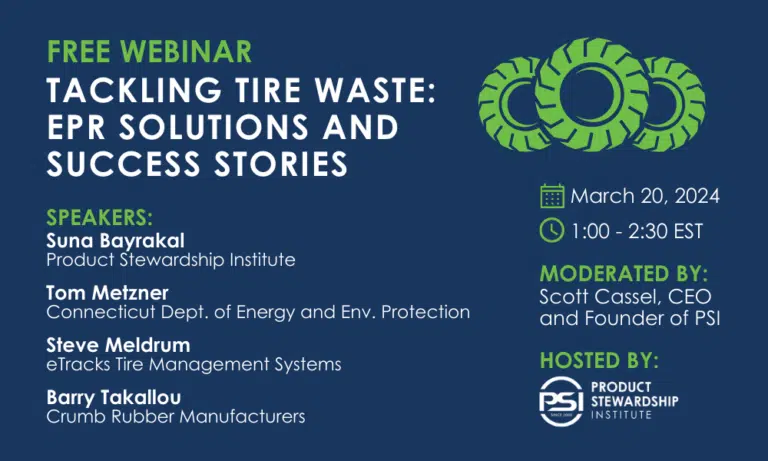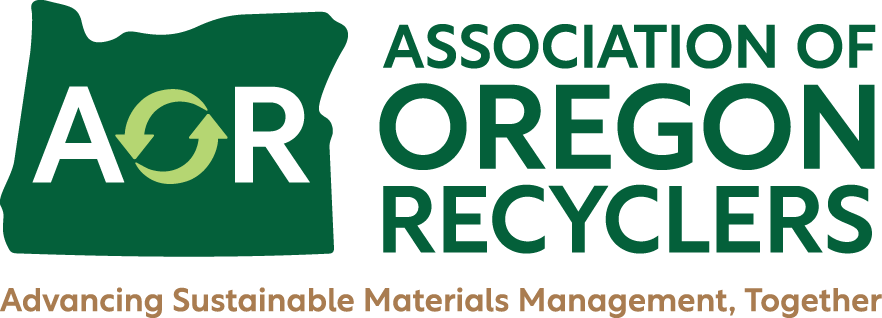Webinars
Webinar: NWPSC Lunch & Learn Washington Battery Stewardship Program
Please join NWSPC on Wednesday, August 21st, for a Lunch & Learn about Washington's Battery Stewardship Law.
The law requires battery producers to establish and fund a program that will make it much easier for residents in Washington to recycle batteries.
Megan Warfield, Product Stewardship Unit Supervisor at the Washington Department of Ecology, will provide an overview of the program and discuss how local governments will be impacted and can get involved. There will be ample time for Q&A.
WEBINAR: Packaging EPR in Minnesota: Unpacking the Process
Over the past two decades, the U.S. product stewardship movement has grown and evolved, from a focus on toxic and bulky products to also include packaging and related materials. In 2021, Maine and Oregon enacted the first two packaging extended responsibility (EPR) laws, followed in 2022 by Colorado and California. A dozen other states have introduced packaging EPR bills over the past two years. In 2024, Minnesota took center stage.
West Coast Climate & Materials Management Forum: Consumption Workgroup Webinar on Food Purchasing & Climate Impacts
Government food purchasers can reduce the climate impacts of their supply chains by choosing low carbon foods and stimulating demand for regenerative growing practices. In this webinar, the Forum will set the context on government purchasing of food and related climate impacts, and real-world examples will be shared by the Center for Good Food Purchasing, City of Seattle, and New York City.
EPA Webinar: Small Format Batteries: Education and Outreach
Please join the EPA from 2:00 to 4:00 PM EDT for a virtual meeting designed to share information from states, Tribes, municipal governments, associations, and industry representatives on effective public outreach and education efforts that promote the proper management of used small format consumer batteries and battery-containing electric products. We will discuss the components of campaigns including messaging, materials, and outlets/mechanisms.
WEBINAR: Scope 3 Inventory: When Assumptions Meet Data

EMISSIONS TO INFLUENCE PROCUREMENT STRATEGIES
WEBINAR: Rebuilding Confidence in Recycling

Recent surveys have reinforced something many of us are hearing from the public: a growing skepticism that items placed in recycling bins actually get recycled. Fed by negative media stories and confusion about the recycling process, these perceptions present a very real risk that people will stop making the effort to sort their waste. The good news is that we can reinforce public confidence of recycling through effective outreach.
WEBINAR: A Deep Dive Into Proven DEI Strategies
Today’s DEI headlines most often highlight the negatives — from poorly implemented DEI initiatives to diminished access to DEI programs to anti-DEI lawsuits. While these conversations are important, they tend to ignore the work being done every day. For example, many HR practitioners are making efforts to foster greater diversity, remove barriers to inclusion and establish equity in their workplaces.
WEBINAR: Tackling Tire Waste: EPR Solutions and Success Stories

Each year, over 250 million tires are discarded in the U.S., with only 40% being recycled. The remaining tires are either burned as tired-derived fuel, (which the tire industry erroneously considers recycling), illegally dumped, or landfilled leading to negative public health and environmental impacts.


